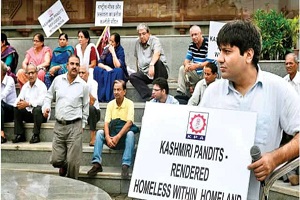 By Neelam Rahim
By Neelam Rahim
Tensions in Indian-administered Kashmir have once again been on the rise.
The Himalayan territory of Kashmir was split between India and Pakistan when the subcontinent was partitioned in 1947. The two nuclear powers claim the region in its entirety. They have fought two of their three full-scale wars over the territory.
Tensions in the valley have peaked since 2019, with Prime Minister Narendra Modi’s Government implementing many laws and policies that local Muslims say aim to change the region’s demographics.
Backed by nearly 600,000 Indian soldiers in the valley, making it the most militarized region globally. Modi’s Government has also been pushing to relocate the displaced Hindus in the valley.
Since the abrogation of Indian-administered Kashmir’s limited autonomy in 2019, the region has witnessed a spike in violence against Kashmiri Hindus, known locally as Pandits.
Radio Islam speaks to Zulqarnain Ibn Yusuf about the overall perspective current situation in Kashmir.
“The year 2022 started peacefully all through January in terms of civilian killings from the army offices deployed here. Moving forward from the 25th February, the first civilian killing took place from the rebels they are targeting,” says Ibn Yusuf.
Ibn Yusuf also says, “Last week the Indian Government and Home Minister Amit Shah attended a three-round meeting in New Dehli. The conclusion of the meeting was that the PM package employees would not be shifted anywhere. The Government will give them a safer place to live. But they will not be turned out of Kashmir. In other words, if they agree to this thing, Kashmir migrants have to be moved to other parts which will be a failure of Indian policy on Kashmir.”
“Recently, an Indian filmmaker from Bollywood, Mr Vivek Agnihotri, made a propaganda film called ‘The Kashmir Files’. That also created a narrative that things would not be good for Kashmir Muslims. In retaliation of that, rebel groups present here have targeted those civilians who supported the regime in India,” said Zulqurnain.







0 Comments